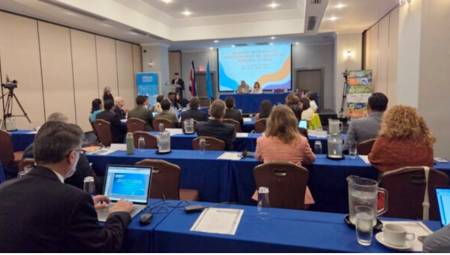 United States. As part of a grant from the U.S. Department of Energy (DOE), researchers at Drexel University are working on a cloud-based data analysis tool that could help consolidate these work while detecting the unidentified problems that lead to energy waste and poor indoor air quality.
United States. As part of a grant from the U.S. Department of Energy (DOE), researchers at Drexel University are working on a cloud-based data analysis tool that could help consolidate these work while detecting the unidentified problems that lead to energy waste and poor indoor air quality.
Jin Wen, Ph.D., an associate professor in the College of Engineering, is developing a tool that can analyze the big data generated by various components in the construction of control systems – that is, thermostats, air meters, and water and energy flow sensors – alert operators in buildings when there is a problem, which is often difficult to notice without help, and suggest options to fix it. The goal is not only to ensure the comfort of the building's occupants, but also to reduce inefficient energy use.
"Operators process a lot of raw data from sensors and control systems, which are constantly receiving fault detection updates and alerts, but there's a lot to process and it's hard to know where to start and what the right solution is for these issues," Wen said. "It's as if a doctor just gives you a list of test results and waits to interpret for himself, rather than identifying the source of the problem and advising on how to improve your health. We want to process the raw data and give operators a diagnosis and some possible solutions – rather than a mountain of readings and warnings."
Getting to the cause of a building problem – for example, the building is using an excessive amount of cooling, but always seems to be too hot – is often handled through a manual process of checking and adjusting various parts of the HVAC system and waiting for a temperature change to occur – signaling that the problem has been solved. But in the meantime, it is estimated that building failures, such as malfunctioning components and control systems, are wasting 20-30% of a building's annual energy bill.
Wen's team wants to use algorithms that can automatically check and analyze the building's data volumes, so operators can be aware of problems right away — even before they're noticed by occupants. The team will save their program for testing using building control data from Stratton Hall on the Drexel campus.














